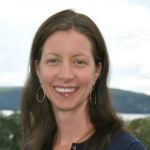
The World Science Festival (WSF) took place in NYC last weekend and I was fortunate enough to be able to attend a few of the events. On Sunday afternoon, I attended a "Salon" (WSF's moniker for an open discussion) about the current state of science and a variety of pressures on scientists that define how their work is accomplished and how to bridge a better understanding of that work between the publications and the public.
It is rare that four people from different silos in the scientific community come together on one stage to talk about the challenges and obstacles that they face, and think about ways to improve it. But, the well rounded panel brought different perspectives to what was a highly enriched conversation about the state of science today.
The panel was hosted by Carl Zimmer, a well known science journalist. Representing the academic world was Dr. Dany Adams, an associate professor in regenerative biology at Tufts University. Dr. Ivan Oransky, a co-founder of the website "retraction watch" and a Distinguished Writer in Residence at New York University’s Arthur Carter Journalism Institute, brought the perspective of when scientific research goes wrong and the damage done by a lack of integrity in science. Mariette DiChristina, Director of Editorial & Publishing for Nature Research Magazines and Editor in Chief at Scientific American, could speak about the importance of the role of journalism in science. Massimo Pigliucci, the K.D. Irani Professor of Philosophy at the City College of New York, embodies all of the above fields as a writer, researcher and educator, lending his overall expertise and insight.
Many topics (too many to cover) were touched on. We will highlight some of them here.
The conversation started wtih how scientists receive their training. The panel explained that young scientists are "thrown into the deep end." Grad school is a time to be marinated in the ways of science, soaking it up and letting it become part of how you think about questions. The learning is not of facts, rather, in the method that science is done. That means, primarily, overcoming confirmation bias - to frame a question in a way that ignores what you believe and to try to prove yourself wrong.
The panel agreed that although this is a great time for science, it is not an easy time to be a scientist. The job market has declined over the decades and there is more talent than places to use it. Additionally, the lack of grant money - only the top 5-10% of scientists are being awarded their grants - is a clear challenge. Also, funding has remained relatively static since the 1980s. The panel tossed around different suggestions of improvements that could be made to the system - such as moving to a more European model of funding a researcher rather than a project or potentially hiring staff scientists to do some of the admin work, giving researchers more time to devote to science.
The relationship between science and society was discussed. Science education was touched upon and the importance of teaching scientific thinking to our children when they are small and continuing it throughout students' education.
Also, science communication was brought up and the responsibility of scientists to spend time and effort communicating. Not only because our tax dollars pay for scientific research and it is only right that time be devoted to talking to the public, but also in order to narrow the gap between scientists and the public. However, this has historically been a problem as good communicators were seen as wasting their time. Max Plank said "ideas get accepted one funeral at a time." As the old guard retires, so too will the idea that science communication is done by bad scientists. New scientists have twitter accounts and are using them to break down barriers.
Everyone agreed that the publish or perish mentality is still alive and well, and hurting scientific progress. Ivan spoke about his website, Retraction Watch, and the stories of fraudulent or falsified data. The number of retractions has drastically increased (ten fold) in the last ten years going from 40/year in 2000 to 400/year in 2010. Two thirds of those are due to fraud or misconduct.
The pressures on journalists are not unlike the pressures on scientists - they need to write a lot and well. Also, journalists need to make sure that they are not part of the problem, without chasing click bait and instead, providing context and fleshing out a topic carefully and accurately. Like science, there is a lot of competition for jobs in journalism. And, with so many scientists writing their own blogs, there may be less space for journalists.
The underlying message was that it will take more than just scientists to get back to the time where there was an understanding of science. That relies heavily on both accurate science being done, but, also accurate communication about science.
